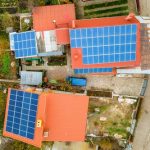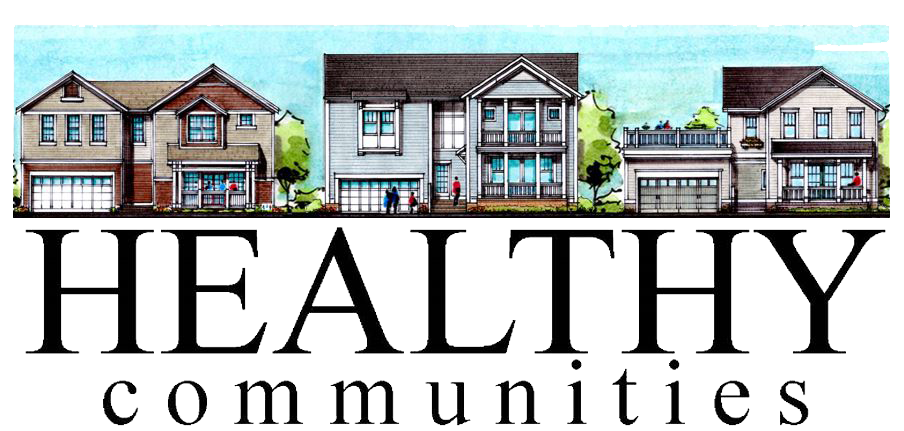 In the quest for a sustainable future, it is essential to not only focus on individual zero energy homes but also explore the concept of zero energy home communities. These communities are built with a collective goal of achieving net-zero energy consumption and promoting sustainable living practices. By embracing the zero energy home concept at a neighborhood level, we can foster a sense of community, inspire collective action, and create truly sustainable and resilient neighborhoods. In this blog post, we will discuss the benefits of zero energy home communities and how they can contribute to building sustainable neighborhoods.
In the quest for a sustainable future, it is essential to not only focus on individual zero energy homes but also explore the concept of zero energy home communities. These communities are built with a collective goal of achieving net-zero energy consumption and promoting sustainable living practices. By embracing the zero energy home concept at a neighborhood level, we can foster a sense of community, inspire collective action, and create truly sustainable and resilient neighborhoods. In this blog post, we will discuss the benefits of zero energy home communities and how they can contribute to building sustainable neighborhoods.
1. Energy Independence
One of the primary benefits of zero energy home communities is the attainment of energy independence. By utilizing renewable energy sources such as solar panels and wind turbines, these communities generate clean, renewable energy locally, reducing their dependence on outside energy sources. This self-sufficiency not only helps to stabilize energy costs for homeowners but also enhances the resilience of the community by ensuring a reliable energy supply in the face of potential disruptions or blackouts. Energy independence also brings economic benefits, as the excess energy generated by zero energy home communities can be sold back to the grid, creating a new revenue stream for the community.
2. Collaboration and Collective Action
Zero energy home communities foster a culture of collaboration and collective action. Homeowners within these communities come together to actively share resources, ideas, and knowledge to collectively achieve the goal of sustainable living. By creating a network of like-minded individuals, zero energy home communities provide a platform for homeowners to learn from each other, collaborate on sustainable initiatives, and inspire one another to further reduce their environmental impact. This sense of community support and shared responsibility helps accelerate the adoption of sustainable practices and creates a positive ripple effect throughout the neighborhood.
3. Reduced Environmental Impact
Zero energy home communities significantly reduce their environmental impact compared to traditional neighborhoods. By harnessing renewable energy, these communities minimize greenhouse gas emissions and reduce their contribution to climate change. Additionally, zero energy home communities emphasize energy-efficient design principles, including superior insulation, energy-efficient appliances, and advanced HVAC systems, which further reduce energy consumption. By reducing energy demands, these communities alleviate the strain on natural resources and lessen the need for additional power generation from non-renewable sources. This collective effort towards sustainability helps to preserve ecosystems, protect biodiversity, and create a healthier environment for both residents and surrounding wildlife.
4. Enhanced Quality of Life
Living in a zero energy home community can enhance the quality of life for homeowners. These communities often feature well-designed green spaces, nature trails, and communal gardens that promote outdoor activities and foster a sense of connection with nature. Additionally, zero energy homes are designed to prioritize indoor air quality, minimizing exposure to pollutants and improving overall health and well-being. Furthermore, the commitment to sustainable practices and energy conservation within these communities promotes a sense of pride and satisfaction among residents, contributing to a stronger sense of community and a higher standard of living.
5. Economic Benefits
Zero energy home communities offer notable economic benefits for homeowners. While the initial investment in zero energy homes may be higher compared to traditional homes, homeowners can recoup their investment over time through reduced energy bills and potential energy credits for any surplus energy generated. Additionally, the adoption and promotion of sustainable practices within these communities can lead to increased property values and market attractiveness. As more homebuyers prioritize sustainability, zero energy home communities become highly sought-after destinations, providing homeowners with a strong return on investment and long-term financial stability.
Conclusion
Zero energy home communities represent an exciting and promising approach to building sustainable neighborhoods. By embracing energy independence, fostering collaboration and collective action, reducing environmental impact, enhancing quality of life, and offering economic benefits, these communities pave the way for a sustainable and resilient future. As we strive towards a greener future, it is time to embrace zero energy home communities and their potential to transform the way we live, interact, and shape our neighborhoods. Through collective effort and shared commitment, we can create sustainable neighborhoods that serve as models for a better world.
Got Questions? Let Us Help!
Welcome to Healthy Communities in beautiful Williamsburg, Virginia! We are custom home builders with a focus on efficient and green building. We believe that good home design can support, enrich, and enhance your life, so we engage you as the buyer in the design process. Together, we can create a tailored design that provides an extraordinary living experience. Our homes are engineered to be energy efficient, utilizing green building products, value-engineered construction, enhanced indoor air quality, and solar power to help offset the electric utility cost for heating, cooling, water heating, lights, and appliances. Give us a call to get started today!
